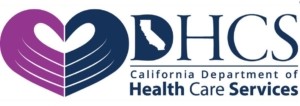Spotting the Signs and Symptoms of Addiction
Table of Contents
Your loved one has been acting … different. They used to be friendly and happy, but recently, they’ve become more secretive about their habits. They might not go out as much, or they might not tell you where they’ve been. Unfortunately, these could be signs of addiction.
Recognizing addiction in a loved one can be difficult, especially if you aren’t even aware they’re abusing substances. Here are some of the most common signs and symptoms of addiction to look out for in your family member or friend.
Behavioral Symptoms
Behavioral symptoms of drug abuse are often the things you’ll notice first. The person might suddenly start changing how they act for no apparent reason. In particular, they might:
- Start hanging out with a new group of friends.
- Spend more and more time alone.
- Avoid family and friends, even if they previously had a healthy relationship with these people.
- Have a loss of interest in their old hobbies and activities.
- Eat more or less than they used to.
- Sleep at odd times (such as the middle of the day).
- Miss important appointments with no valid excuse.
- Steal money or take items without permission (often to sell for drug money).
Emotional Symptoms
Emotional symptoms are also noticeable, but in many cases, you might attribute them to the person having a bad day at work or not getting enough sleep. It’s only as the addiction worsens that the emotional problems might start causing rifts in relationships. Emotional symptoms to look out for in your loved one include:
- Feeling sad or depressed for no real reason.
- Feeling tired.
- Constantly being in a bad mood, even when things are going well.
- Shifting quickly between happy moods and volatile moods.
- Having difficulty maintaining relationships with their friends and family.
Physical Symptoms
Physical symptoms are often the toughest to spot as they are often subjective to the person using drugs. However, there are still some things you might notice, including:
- Wearing the same dirty clothes over and over again.
- Not maintaining personal hygiene, such as showering, brushing teeth, etc.
- Talking very fast or being overly energetic.
- Having track marks on their arms, legs, fingers or toes.
- Throwing up or mentioning that they feel nauseous.
- Sudden loss of weight.
What to Do If You Spot These Signs
If your loved one has only two or three of these symptoms, they might just be going through a rough patch. It isn’t always substance abuse.
However, if you notice they have a majority of these symptoms, you’ll want to start thinking about getting them help. A good first step is to seek the advice of an addiction specialist in your area. They might be able to offer more insight into your loved one’s behavioral, emotional, and physical changes and possibly even provide information on treatment.
Once you feel confident, offer your support and assistance to your loved one. They might not be ready to come to terms with their addiction right away, but when they are, they’ll need someone to lean on if they want to get back to normal life.
Sources:
https://easyread.drugabuse.gov/content/what-are-some-signs-and-symptoms-someone-drug-use-problem








